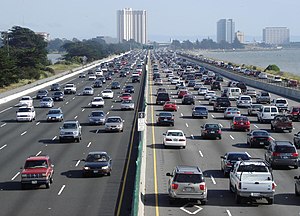Nothing fires up a local Village Board like eminent domain.
One of my duties as a transportation planner for Metra is to participate in transit-oriented development studies in communities that apply for the grants to fund these studies through the RTA. Tonight we presented a TOD plan in front of the Village Board of a wealthy suburb for discussion. We hoped this discussion would lead to a recommendation for the Board to adopt the study. Alas, we were wrong.
It seems that the third rail of local politics was mentioned, not in the plan, but in discussions of possible tools that the Village could use to implement their plan, should it be adopted. It was noted and explored in the steering committee driving the plan that one possible tool was the use of eminent domain. Eminent domain refers to the action of the state in expropriating property or the rights thereof from a private citizen with monetary compensation but without consent of the owner. This property is taken for public use and in some cases, economic development, as granted by right in Kelo v. City of New London (2005). Because of the Kelo decision and general anti-government sentiment there has been a backlash against government taking private property in general and specifically for use in economic development across the country. This is no different in the Chicago region.
The problem with eminent domain in the planning context is that it politicizes the planning process with issues that have little to do with the actual plan. I have never seen a plan that has actually recommended using eminent domain as an implementation tool in a plan because the political, legal and procedural hurdles are usually so great that it is not worth pursuing. The vast, vast majority of plans are not trying to develop 3,1oo jobs and $1.2m in annual revenues like the New London, CT was. Because of this politicization (“take your government hands off my property!”), the Village Board was unable to weigh the merits of what was actually in the plan.
A good plan is a set of guidelines for decision makers to use in implementing a vision for their community. It is a tool. It says, if we build a parking structure, how much would it cost the government? It identifies how a Village could update their zoning code to fit with today’s market realities. It identifies short range and long range opportunities for implementation. A good plan does NOT tell developers what to build. A good plan does NOT advocate eminent domain. A good plan does NOT ignore property owners which are impacted by the plan.



